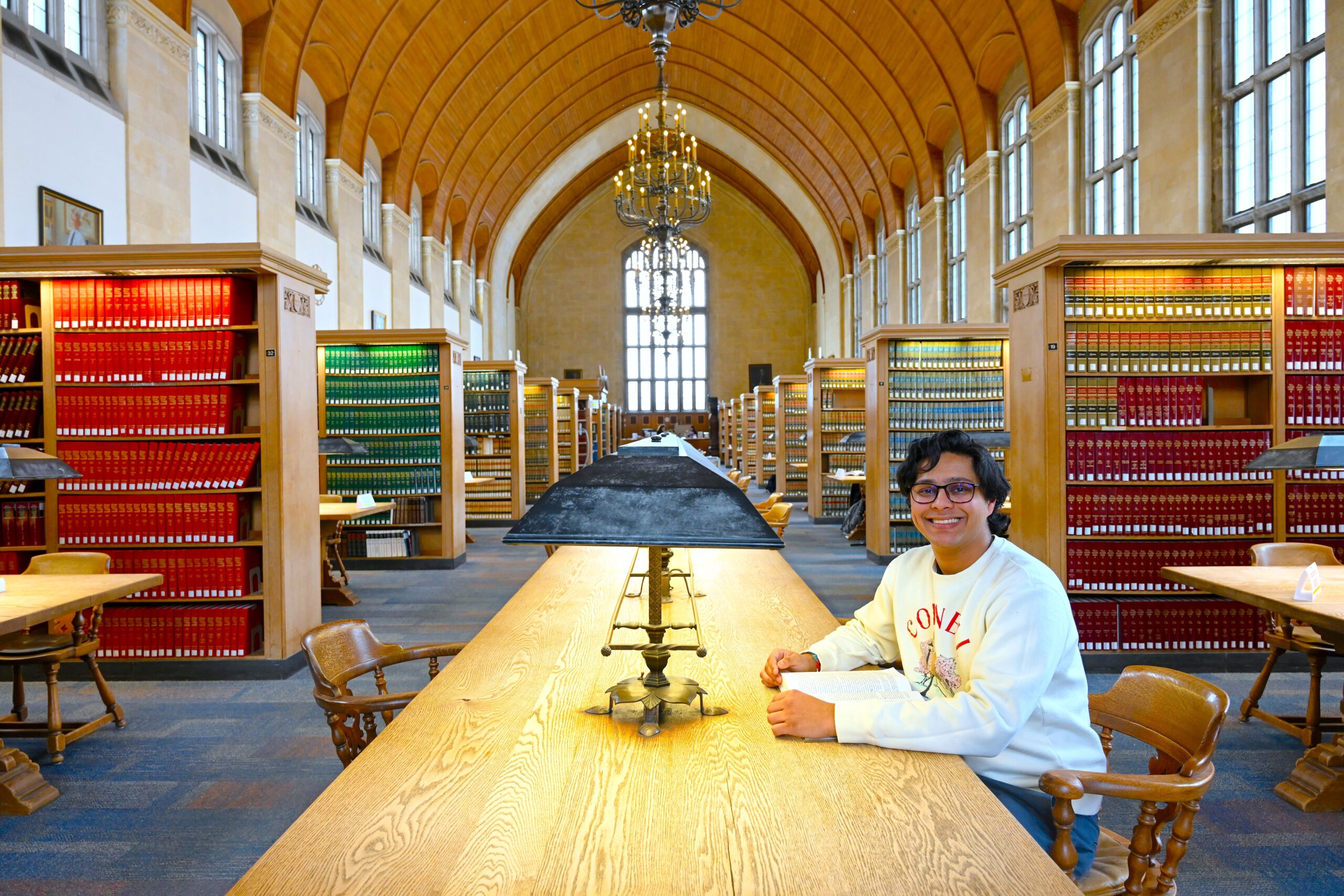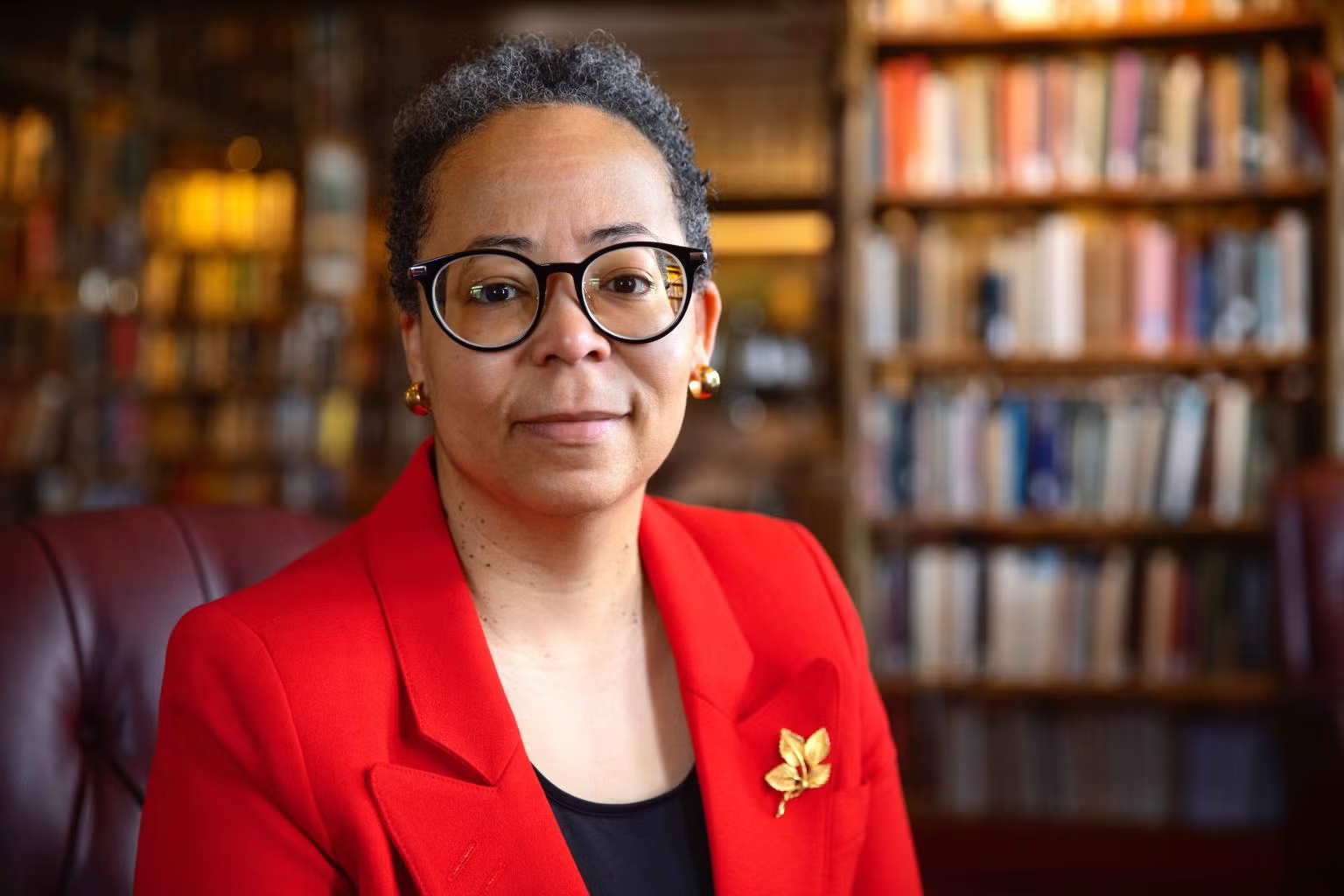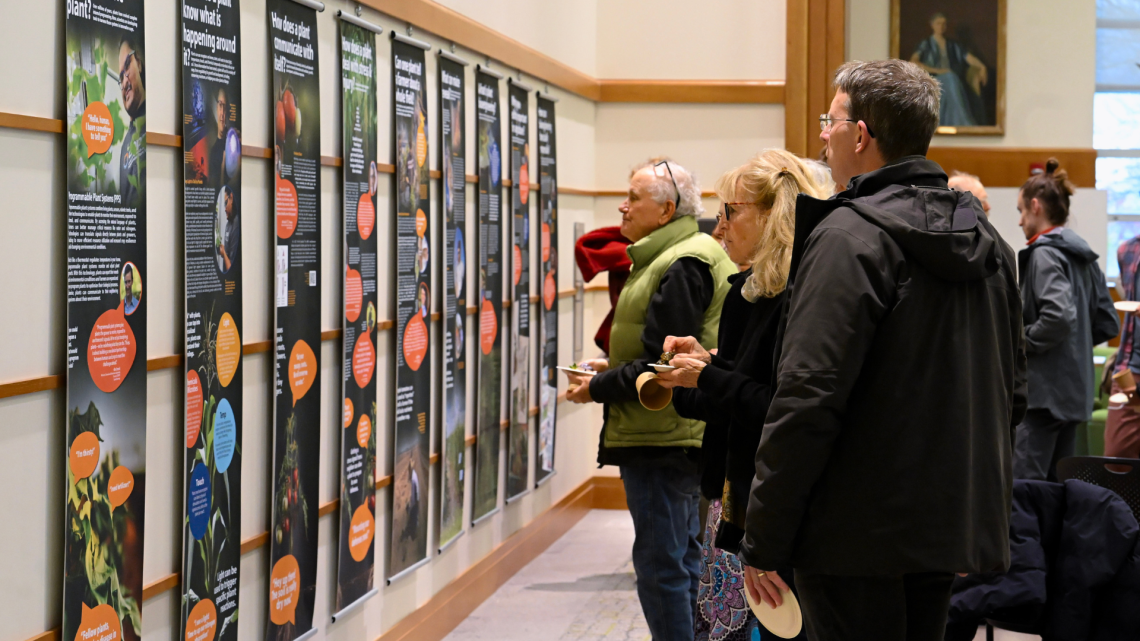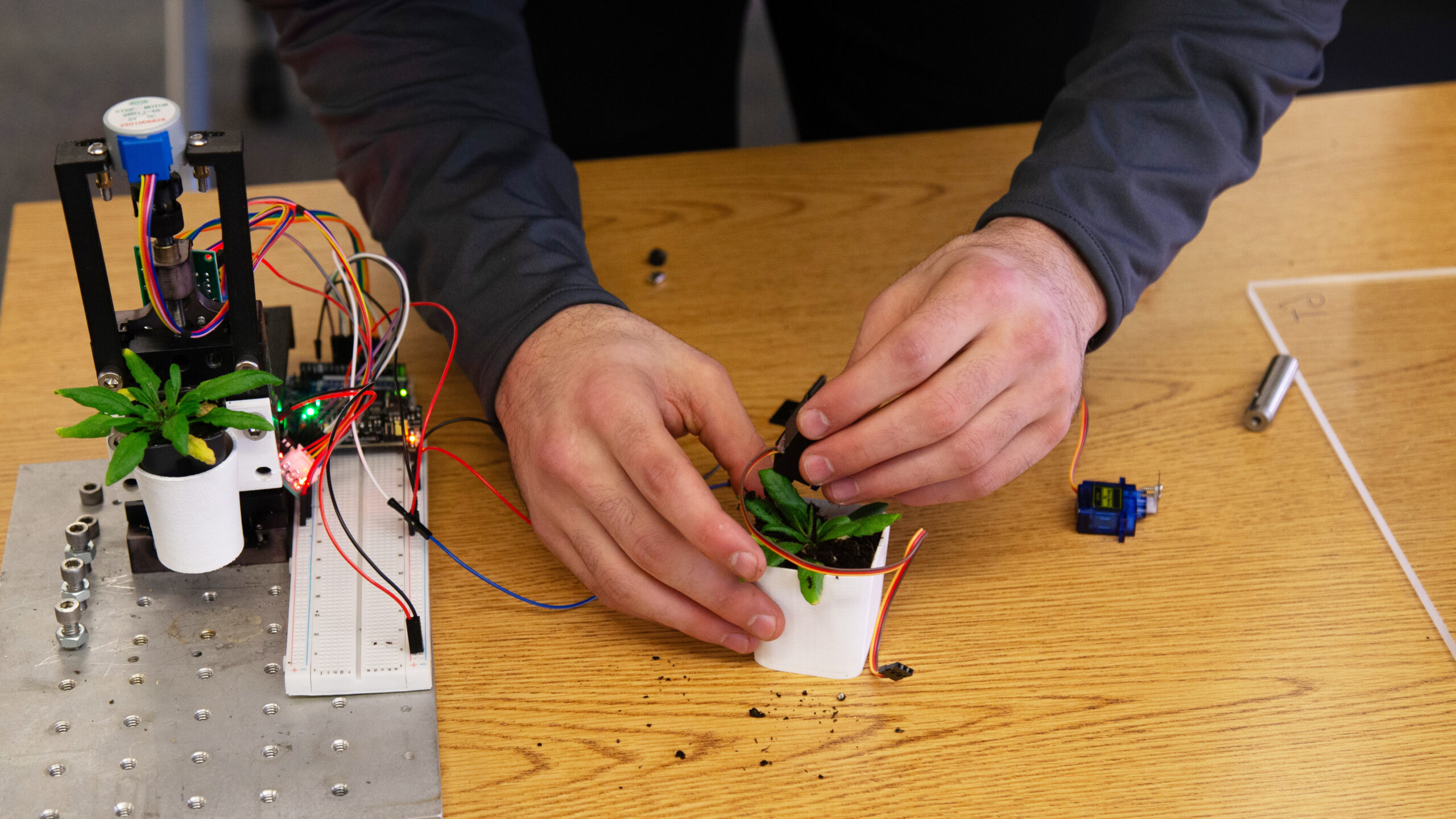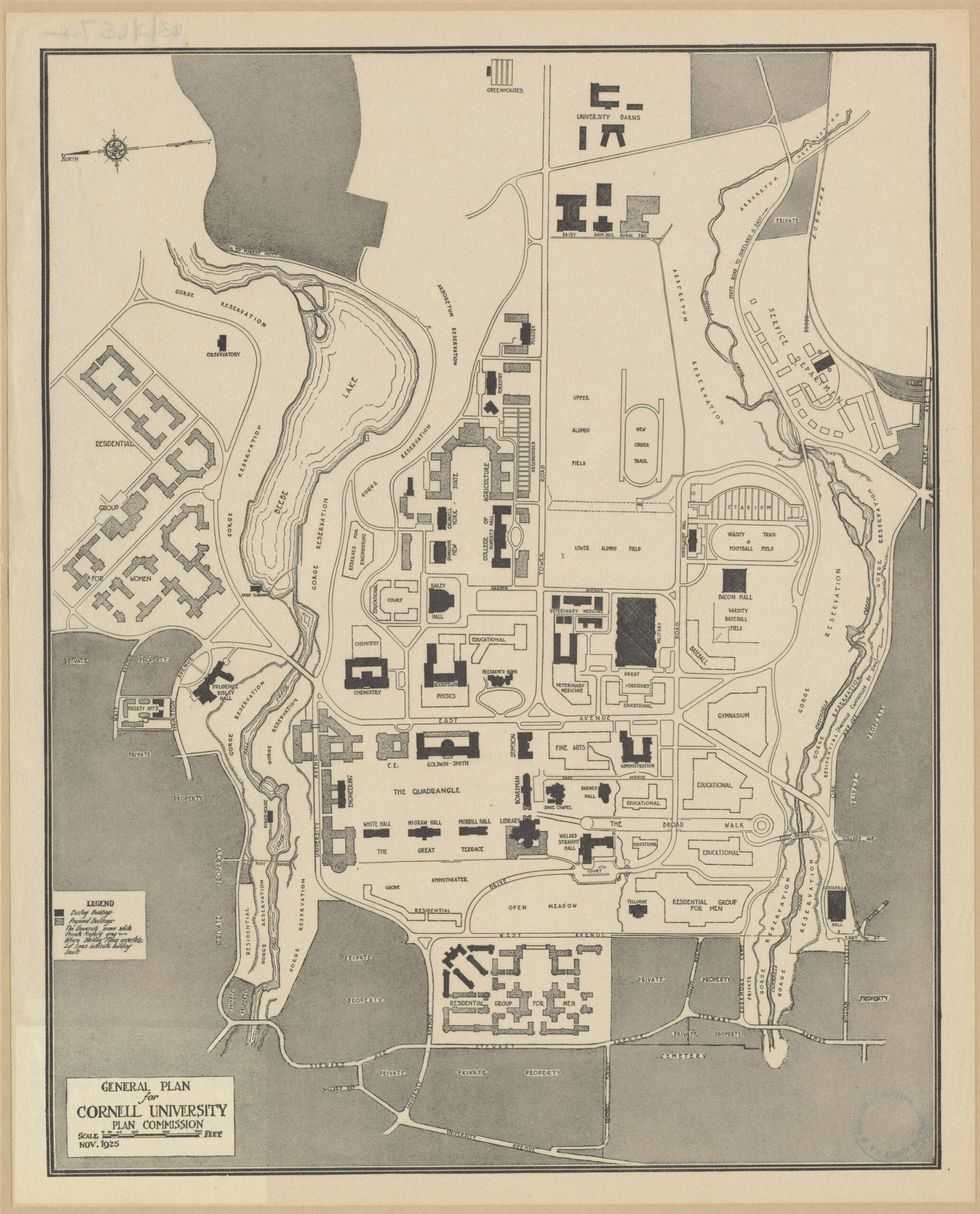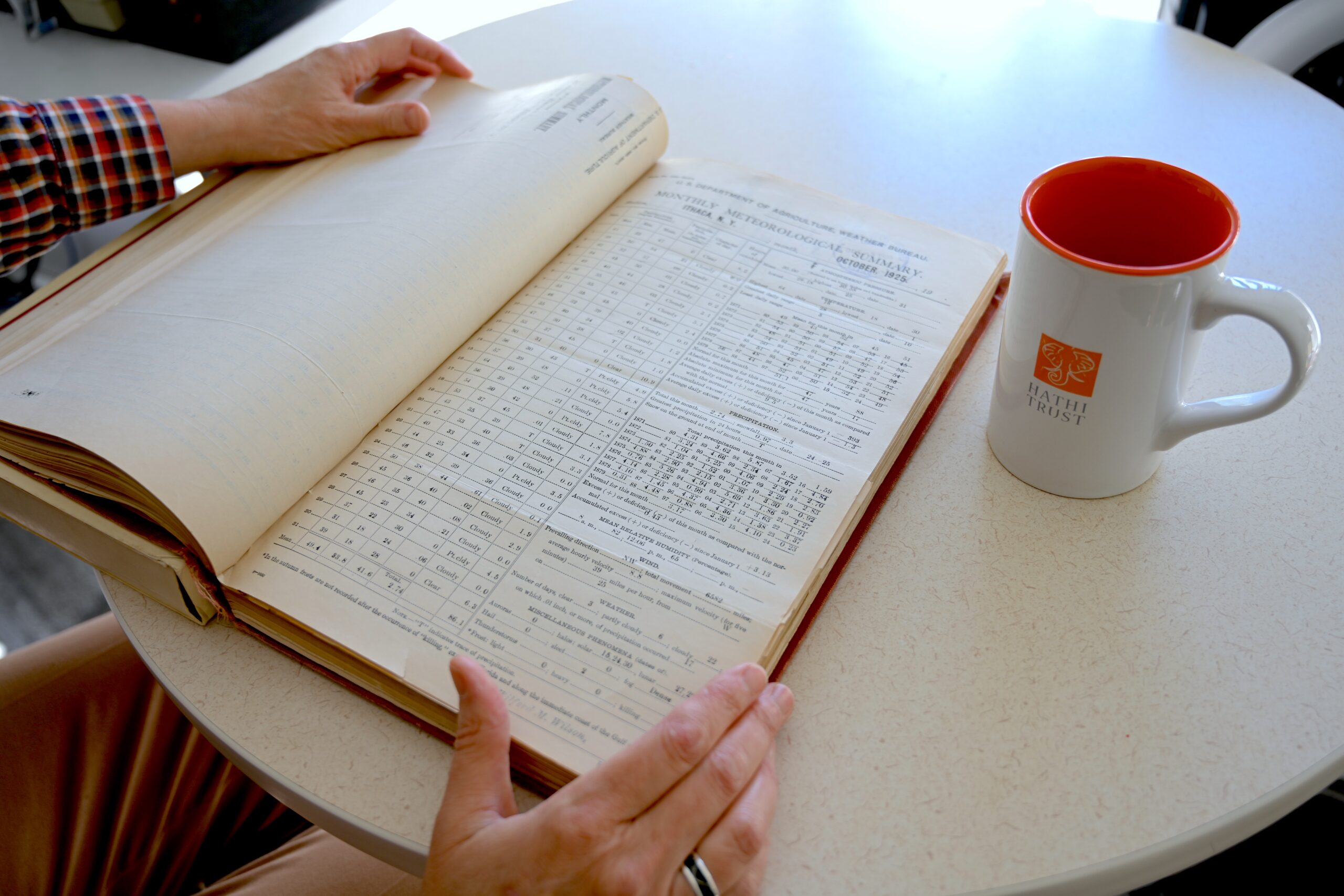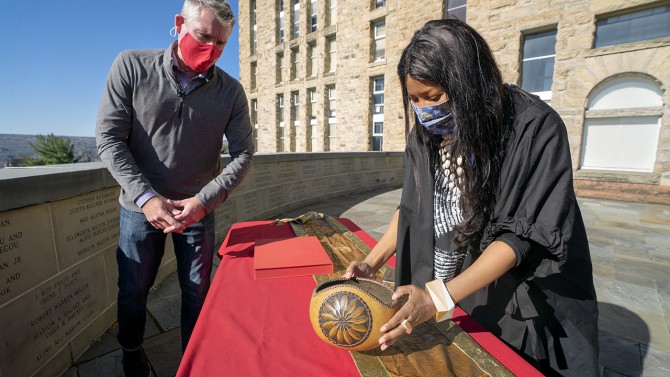
The diaries of the last fluent speaker of the Mohegan-Pequot language have returned home.
On Nov. 4, the papers of Fidelia “Flying Bird” Fielding, who died in 1908, were transferred from Cornell University Library to the Mohegan Tribe. Mohegan Tribal Historic Preservation Officer James Quinn traveled from Uncasville, Connecticut, to Cornell’s Ithaca campus to receive the rare manuscripts from Gerald R. Beasley, the Carl A. Kroch University Librarian. Beasley was accompanied by Tamar Evangelestia-Dougherty, associate university librarian; and Anne Sauer, the Stephen E. and Evalyn Edwards Milman Director of the library’s Division of Rare and Manuscript Collections.
The papers include three diaries and a copy of the Lord’s Prayer in Mohegan – the only known surviving documents from Fielding. Other diaries and documents were lost in a fire after her death.
“We believe that these papers coming home is really Fidelia coming home to us,” said Lynn Malerba, chief of the Mohegan Tribe. “It’s the homecoming of her spirit.”
Malerba noted the tribe’s ongoing language revitalization program.
“Fidelia’s work is so important in preserving our language and ensuring that it lives on,” she said. “Her papers coming back to us sends a powerful message for the next generation: Our language is not lost and that they can be part of its restoration.”
The Mohegan Tribe reached out to Cornell last year to request the transfer of Fielding’s papers to help with their language revitalization efforts.
“The process has been such a wonderful experience for us because everyone at Cornell has been so open to understanding why these papers are so important to us, and so helpful and so willing to share in our happiness in their return,” Malerba said.
“We have been honored to safeguard Fielding’s diaries for the last 15-plus years, and make them available for research and teaching,” Sauer said. “We were glad to do everything we could to facilitate the transfer.”
Cornell University Library came into possession of Fielding’s papers in 2004, with the acquisition of the Native American Collection of Huntington Free Library in the Bronx, New York. Since then, the library has provided researchers with on-site access to the Native American Collection and featured its artifacts in physical and online exhibits. The library also digitized a significant portion of the collection, including Fielding’s diaries, which continue to be used by scholars to research and teach the Mohegan-Pequot language.
“I’m very grateful to everyone at the Cornell Library and in the Mohegan Tribe who has come together to help bring this collection home,” said Cornell University President Martha E. Pollack. “This is a wonderful outcome.”
Fielding’s papers will be housed and displayed in the Mohegan Archives.
“The only other objects of hers that we have are a belt that she wore that she passed on to Gladys Tantaquidgeon, and a rocking chair that she told stories on and that belonged to her mentor, Martha Uncas,” said medicine woman and tribal historian Melissa Zobel, referring to two influential elders.
Zobel describes Fielding as a preserver of the Mohegan-Pequot language and keeper of the language’s intimate connection to an animated natural world.
“She spoke to the ancestors. She spoke to the winds and the rain and the thunder and the Makiawisug, or the Little People,” Zobel said, referring to spirits believed to inhabit the woodlands.
Late in her life, as Mohegan-Pequot-speaking peers died and younger Mohegans stopped learning the language, Fielding turned to speaking to herself and writing in her diaries to keep the language alive.
“These diaries weren’t meant for a generation that was right there and present,” Zobel said. “They were meant for a better future.”
This story also appeared in the Cornell Chronicle.
